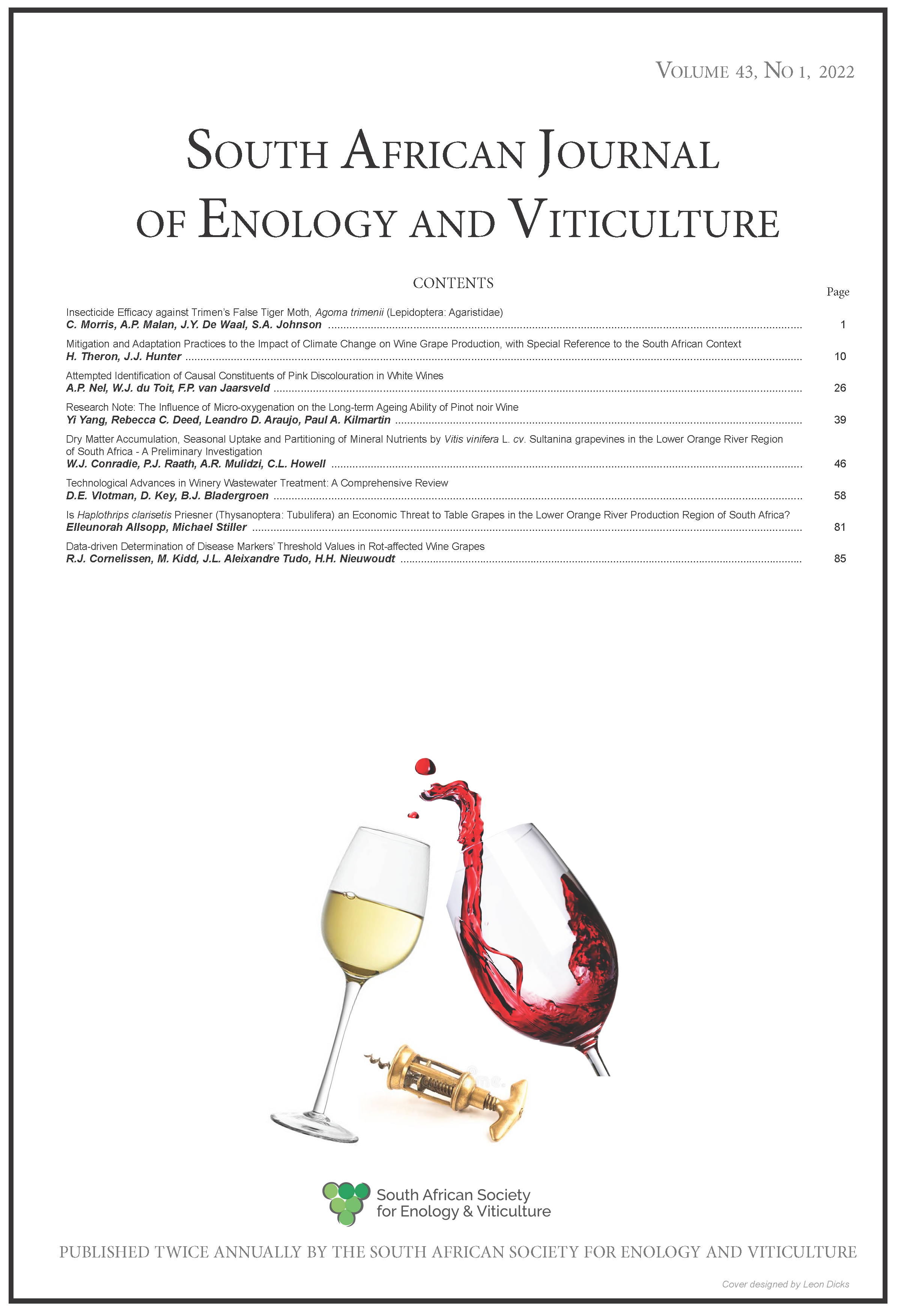Technological Advances in Winery Wastewater Treatment: A Comprehensive Review
DOI:
https://doi.org/10.21548/43-1-4931Abstract
The commercial production of wine is directly linked to the use of large amounts of fresh water coupled
with the generation of copious amounts of wastewater containing significant amounts of organic and
inorganic substances. The impact of this waste stream on the environment has required the wine industry
to implement certain protocols in wastewater management to comply with respective effluent discharge
regulations as set out by local authorities. Reduced accessibility to good quality water resources in recent
years has forced wineries to consider more efficient wastewater management strategies to improve water
recovery and re-use, thereby promoting more sustainable wine production and minimizing the impact on
stressed water resources. This review presents a comprehensive overview of established and emerging,
physicochemical, biological, advanced oxidation and hybrid wastewater treatment technologies specifically
applicable to the wine producing industry. Herein, winery wastewater composition and treatment
techniques, environmental implications, knowledge gaps, technological operational challenges, alternative
disposal and recycling options of treated winery wastewater are critically evaluated.
Downloads
Downloads
Published
How to Cite
Issue
Section
License
A copyright form will be e-mailed to the corresponding author when the manuscript has been accepted for publication.
In principle, the Author agrees to the following when he/she signes the copyright agreement:
I hereby assign to the SOUTH AFRICAN SOCIETY FOR ENOLOGY AND VITICULTURE (SASEV) the copyright of the text, tables, figures, supplementary material, illustrations and other information (the Material) submitted with the manuscript to be published in SOUTH AFRICAN JOURNAL OF ENOLOGY AND VITICULTURE (SAJEV) (the "Article"). The copyright becomes effective from the date the Article has been accepted for publication in SAJEV.
This is an open access journal, and the authors and journal should be properly acknowledged, when works are cited.
Author's may use the publishers version for teaching purposes, in books, theses, dissertations, conferences and conference papers.
A copy of the authors' publishers version may also be hosted on the following websites:
- Non-commercial personal webpage or blog.
- Institutional webpage.
- Authors Institutional Repository.
The following notice should accompany such a posting on the website: This is an electronic version of an article published in SAJEV, Volume XXX, number XXX, pages XXX - XXX, DOI. Authors should also supply a hyperlink to the original paper or indicate where the original paper (www.journals.ac.za/index.php/sajev/) may be found.
Authors publishers version, affiliated with the Stellenbosch University will be automatically deposited in the University's Institutional Repository SUNScholar.
Articles as a whole, may not be re-published with another journal.
The following license applies:
Attribution CC BY-NC-ND 4.0

